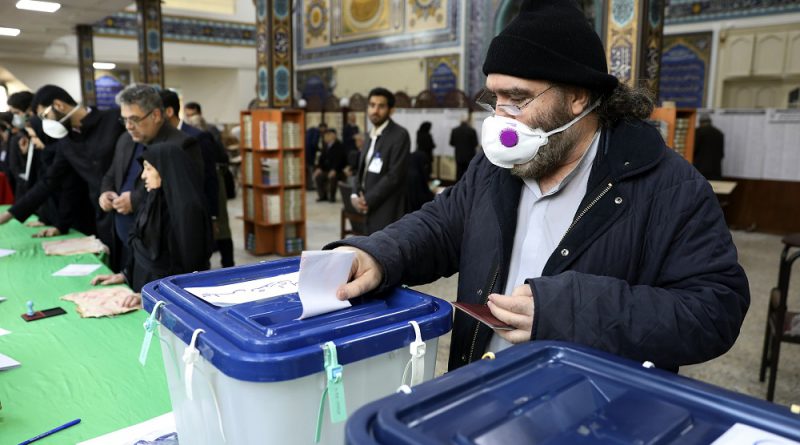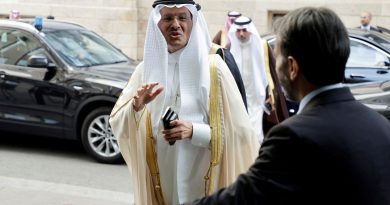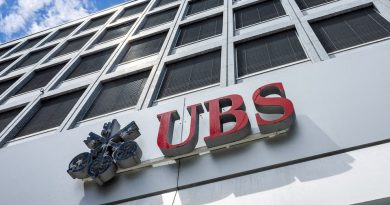Iran announces low poll turnout, blames coronavirus “propaganda”
Dubai (Reuters) – Iran on Sunday announced a 42% turnout in its parliamentary election, the lowest rate since the 1979 Islamic revolution, while its top leader said Tehran’s enemies played up the new coronavirus threat to dissuade people from voting.
With Iran facing growing isolation and threats of conflict over its nuclear standoff with the United States, and increasing discontent at home, the turnout is seen as a referendum on the popularity of the Islamic republic’s rulers.
“The turnout across the country was 42.57% … In Tehran, it was around 25%. Across Iran, over 24 million people voted,” Interior Minister Abdolreza Rahmani Fazli told a televised news conference. Turnout was 62% in the 2016 parliamentary vote and 66% of voters cast ballots in 2012.
The final results, announced by the Interior Ministry, showed big gains by hardline loyalists close to Supreme Leader Ayatollah Ali Khamenei, who has the last say on all state matters.
In Tehran, a list of hardliners gained 30 seats for the capital, with former commander of the elite Revolutionary Guards, Mohammad Bagher Qalibaf, topping the list.
Qalibaf’s pedigree as the Guards’ air force commander, a war veteran and a national police chief has endeared him to Iran’s supreme leader, bolstering his chances of becoming the next parliament speaker.
Khamenei, who on Friday said that voting was “a religious duty”, blamed the low turnout on the “negative propaganda” about the new coronavirus by Iran’s enemies.
“This negative propaganda about the virus began a couple of months ago and grew larger ahead of the election,” said Khamenei, according to his official website Khamenei.ir.
“Their media did not miss the tiniest opportunity for dissuading Iranian voters and resorting to the excuse of disease and the virus.”
Iran, which confirmed its first case of the new coronavirus two days before the polls, has announced 43 cases of the virus in four different cities, including Tehran. With eight deaths, Iran has the highest death toll from the new coronavirus outside of China, the homeland of the outbreak.
The parliament has no major influence on foreign affairs or Iran’s nuclear policy, which are determined by Khamenei. But it might bolster hardliners in the 2021 contest for president and toughen Tehran’s foreign policy.
The United States’ 2018 withdrawal from Iran’s nuclear deal with world powers, and its reimposition of sanctions, have hit Iran’s economy hard.
The establishment’s legitimacy was badly damaged after nationwide protests in November, which were met with a violent crackdown that deepened resentment over economic hardship and corruption.
The hardline Guardian Council, which must approve candidates, removed thousands of moderates and leading conservatives from the race by barring about 6,850 hopefuls from in favour of hardliners from among 14,000 applicants.
“Our people’s participation in Friday’s election was good,” said Khamenei.



